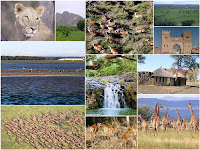WHY MUGUKA & MIRAA (QAT ) SHOULD BE BANNED IN KENYA?
#Muguka and #Miraa are known to be detrimental and destructive to families, health and wellbeing. In #Kenya most of those who consume the two are #Muslims; and look at what it has done to them - it has kept them low economically and educationally.
Children from families who chew the two drugs, very rarely go far in education. It's Muslims who are mainly to be found in poor places like: Kalolenis, Majengos, Bondenis etc. If it wasn't for many Muslims working in Saudi Arabia and other Gulf countries (where many were being paid well) and if it wasn't for millions of #Somalis migrating and living in Western countries (sending remittances), Muslims would have been even much poorer.
Then look too, at countries that have many people chewing muguka/miraa - they are some of the poorest and most fragmented - #Somalia, #Yemen and #Djibouti. The millions of Muslims in #Ethiopia are poor and uneducated mainly due to their families being dominated by #qat.
How can the laws or constitution of any nation say it's just and fair and yet support the consumption of such destructive plants? What makes the consumption of muguka/miraa along the coast and other places where there are Muslims so sad (and insulting), is that - they are produced by others very far from where they are consumed. Others who immensely, financially benefit from the two, and are not adversely affected by either.


